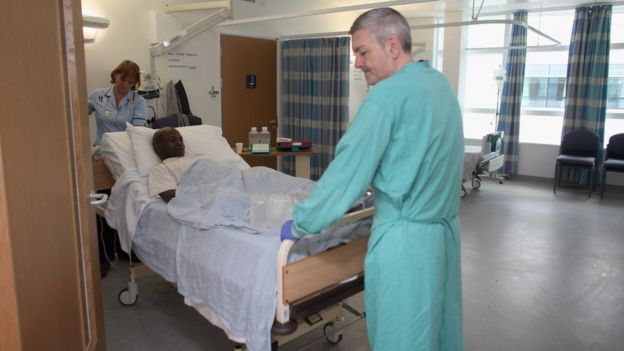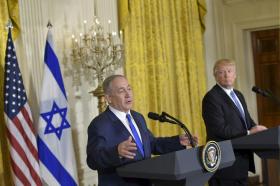The White House excluded several major US news organisations, including some it has criticised, from an off-camera briefing held by the White House press secretary on Friday.
Reporters for CNN, The New York Times, Politico, The Los Angeles Times and BuzzFeed were not allowed into the session in the office of press secretary Sean Spicer.
Spicer's off-camera briefing, or "gaggle," replaced the usual televised daily news briefing in the White House briefing room.
He did not say why those particular news organisations were excluded, a decision which drew strong protests.
Reuters was included in the session, along with about 10 other news organisations, including Bloomberg and CBS.
President Donald Trump has regularly attacked the media and at a gathering of conservative activists on Friday he criticised news organisations that he said provide "fake news", calling them the "enemy" of the American people.
Spicer said his team decided to have a gaggle in his office on Friday instead of a full briefing in the larger White House briefing room and argued that “we don´t need to do everything on camera every day.”
Reporters at the Associated Press and Time magazine walked out of the briefing when hearing that others had been barred from the session.
Off-camera gaggles are not unusual. The White House often invites handpicked outlets in for briefings, typically for specific topics.
But briefings and gaggles in the White House are usually open to all outlets and they are free to ask anything.
A pool reporter from Hearst Newspapers was included in the gaggle on Friday and gave full details to the entire press corps.
Media outlets allowed into the gaggle also shared their audio with others.
Spicer's decision drew a sharp response from some of the media outlets that were excluded.
"Nothing like this has ever happened at the White House in our long history of covering multiple administrations of different parties," Dean Baquet, executive editor of The New York Times, said in a statement.
"We strongly protest the exclusion of The New York Times and the other news organisations. Free media access to a transparent government is obviously of crucial national interest."
The White House Correspondents Association, or WHCA, also protested. "The WHCA board is protesting strongly against how today´s gaggle is being handled by the White House," said Jeff Mason, president of the association and a Reuters reporter.
During the election campaign last year, Trump´s team banned a few news organisations, including The Washington Post and BuzzFeed, from covering his campaign rallies for a period of time to protest their coverage.
CNN posted a Twitter message on Friday afternoon saying, "This is an unacceptable development by the Trump White House. Apparently, this is how they retaliate when you report facts they don’t like. We’ll keep reporting regardless.”
Ben Smith, editor-in-chief of BuzzFeed News, said in a statement, "While we strongly object to the White House´s apparent attempt to punish news outlets whose coverage it does not like, we won´t let these latest antics distract us from continuing to cover this administration fairly and aggressively."
On Friday, Spicer said the White House plans to fight against what it says is unfair coverage. "I think we’re going to aggressively push back," he said.
"We’re just not going to sit back and let false narratives, false stories, inaccurate facts get out there."
"We’re just not going to sit back and let false narratives, false stories, inaccurate facts get out there."



